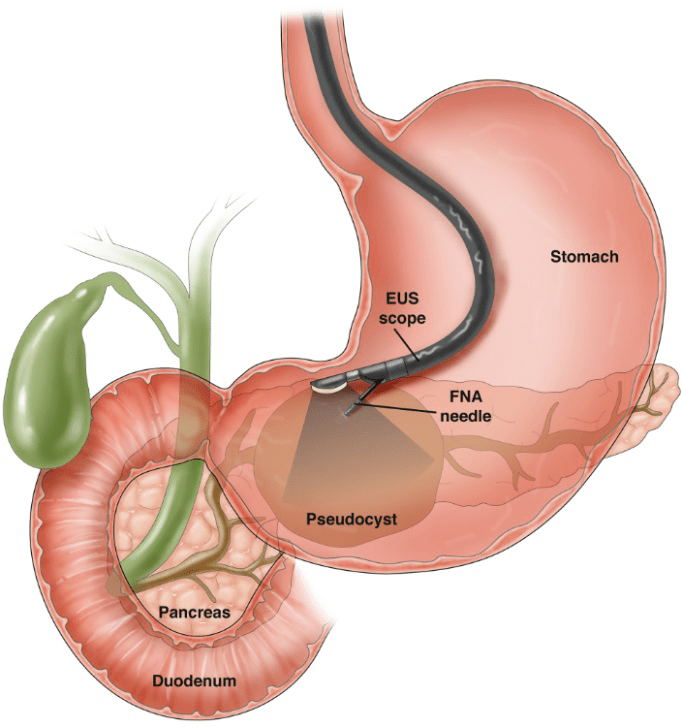Dr. Husain Bohari – ERCP Specialist in Nashik
What is ERCP?
(Endoscopic Retrograde Cholangio-Pancreatography)
ERCP is a procedure that enables your physician to examine the pancreatic and bile ducts. A bendable, lighted tube (endoscope) about the thickness of your index finger is placed through your mouth and into your stomach and the first part of the small intestine (duodenum). In the duodenum, a small opening is identified (ampulla) and a small plastic tube (cannula) is passed through the endoscope and into this opening. Dye (contrast material) is injected and X-rays are taken to study the ducts of the pancreas and liver.

Why is an ERCP performed?
ERCP is most commonly performed to diagnose conditions of the pancreas or bile ducts and is also used to treat those conditions. It is used to evaluate symptoms suggestive of disease in these organs or to further clarify abnormal results from blood tests or imaging tests such as ultrasound or CT scan. The most common reasons to do ERCP include abdominal pain, weight loss, jaundice (yellowing of the skin), or an ultrasound or CT scan that shows stones or a mass in these organs.
ERCP may be used before or after gallbladder surgery to assist in the performance of that operation. Bile duct stones can be diagnosed and removed with an ERCP. Tumors, both cancerous and noncancerous, can be diagnosed and then treated with indwelling plastic tubes that are used to bypass a blockage of the bile duct. Complications from gallbladder surgery can also sometimes be diagnosed and treated with ERCP.
In patients with suspected or known the pancreatic disease, ERCP will help determine the need for surgery or the best type of surgical procedure to be performed. Occasionally, pancreatic stones can be removed by ERCP.
What are the risks and complications?
Fortunately, these procedures are very safe – this is why they are used instead of surgery. Problems do sometimes occur, however, but these can be explained if you wish by your doctor or hospital staff. If you have any problems after ERCP which you feel may be related to the test, please inform your doctor or hospital staff at once. An operation may be necessary to treat a complication, but this is very rare. Again, please do not hesitate to discuss possible complications or risks with hospital staff before ERCP.
What happens after ERCP?
You will be monitored in the endoscopy area for 1-2 hours until the effects of the sedatives have worn off. Your throat may be sore for a day or two. You will be able to resume your diet and take your routine medication after you leave the endoscopy area unless otherwise instructed.
Your physician will usually inform you of your test results on the day of the procedure. Biopsy results take several days to return, and you should make arrangements with your physician to get these results. The effects of sedation may make you forget what you were instructed to do after the procedure. Call your– surgeon’s office for the results or any further questions.

